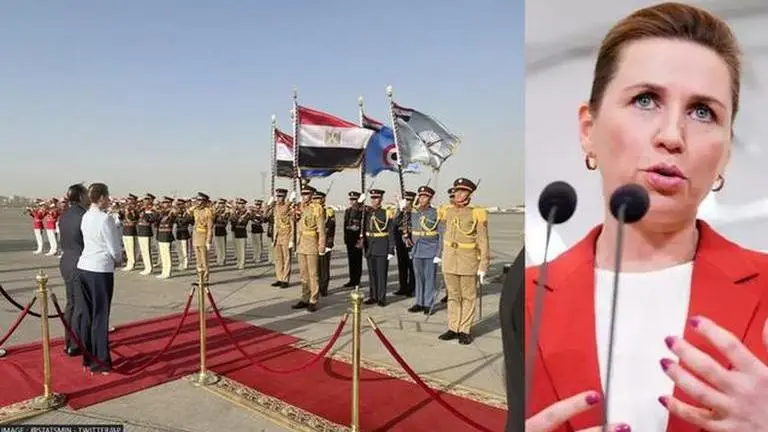Updated 14 March 2023 at 16:45 IST
Denmark PM Frederiksen concerned about Europe's isolation during Africa 'influence' trip
Danish Prime Minister Mette Frederiksen voiced concerns in Egypt that Europe "risks being isolated in a new world" unless it "very quickly" reaches out.
- World News
- 4 min read

Prime Minister of Denmark Mette Frederiksen expressed her fundamental concern that Europe "risks being isolated in a new world" unless it "very quickly" reaches out to new partners and builds strong alliances, reported Sputnik News.
Frederiksen is currently visiting Egypt as part of what she has referred to as "a battle of influence on the African continent".
During her three-day stay, Frederiksen has already held a lengthy meeting with Egyptian President Abdel Fattah El-Sisi to discuss various topics, including the green transition and the flow of African refugees to the EU. According to Frederiksen, Europe will have to understand "not one, but two unpleasant truths about Africa".
PM Frederiksen:
— Statsministeriet (@Statsmin) March 12, 2023
“Just arrived in Egypt. Egypt is an important partner for DK and EU and a strong voice in the region. We must meet global challenges such as climate change, war, migration, the food crisis together.” pic.twitter.com/h6GBrtpYXJ
One is that African countries "do not look at international development in the same way as Europeans". The other is that "great powers such as Russia and China are well on their way to gaining influence in Africa at the expense of Europe".
Advertisement
"I have a fundamental concern that Europe risks being isolated in a new world if we are not very, very quickly able to reach out to new partners and build some stronger alliances," Mette Frederiksen told Danish media. "On the entire African continent, Russia and China are very actively present with investments and trade. And Europe hasn't in recent years played as active a role on the international stage as we should," she added.
This strategy represents a shift in Danish foreign policy. Previously, Copenhagen, along with its Nordic counterparts, emphasised human rights and democratic principles in their dealings with "dictatorships", a term that Danish politicians and the media still use to describe Egypt. However, this time, democracy and human rights are noticeably missing from the schedule, indicating a departure from what experts once referred to as an "activist" foreign policy.
"You cannot say that Egypt has a Western attitude. Egypt has an Egyptian attitude," Frederiksen said, apparently ditching hopes of "Westernising" Africa.
Advertisement
Denmark’s new foreign policy for outreach
Hereby, Denmark is apparently in the process of implementing a new foreign and security policy strategy first presented in January of last year.
"We want to build a much closer bond with North Africa, both bilaterally and through the EU. A collaboration that is commensurate with how important the North African countries are to Danish interests," the Danish Foreign Ministry said in the strategy.
The strategy involves not only a change of rhetoric, but also a stronger financial commitment. In the years 2022-2024, DKK 200 million ($29 million) has been set aside to "strengthen resilience and create better local living conditions in North Africa".
Overall, Frederiksen ventured that preserving European influence in Africa and elsewhere requires a comprehensive effort. She cited "a number of Asian economies that are booming and will push European ones out of the economic strength ratings".
"And the Europeans are getting fewer and fewer, but the Africans are getting more and more. The balance of power will shift year by year," Frederiksen concluded.
In recent years, there has been a swift expansion of Russia-Africa relations, as the continent has become a battleground for major powers to assert their spheres of influence. Meanwhile, the West has been putting in extra effort to discourage African countries from cooperating with Russia and China and to create a divide in their relationships.
However, economic and political dealings with Russia have continued to grow stronger. In mid-March, Moscow will hold the second Russia-Africa international parliamentary conference, which will mainly focus on the multipolar world.
Published By : Digital Desk
Published On: 14 March 2023 at 16:45 IST
